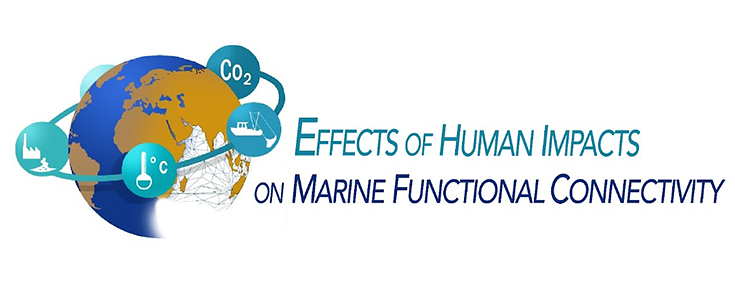
The symposium, hosted by the COST (European Cooperation in Science and Technology) Action SEA-UNICORN and the International Council for the Exploration of the Sea (ICES), will gather the latest research on changes in marine connectivity under anthropogenic pressures, including the ubiquitous effects of global warming (e.g. increases in water temperature and extreme weather events, changes in oceanic circulation) but also regional human activities modifying marine habitats and ecosystems (e.g. fishing, offshore wind farms, shipping, aquaculture). Emphasis will be placed on describing the effects on connectivity of a wide range of human activities at different scales, pinpointing cumulative impacts where possible, and showcasing adaptive management strategies.
Five theme sessions and two workshops will focus on the changes in marine functional connectivity in response to human activities and management strategies to mitigate changing marine connectivity and uncertainty in its forecasts.
Limited funds will be available to support travel and accommodation for i) early career scientists, with priority given to those of a nationality and/or affiliation with ICES Member Countries and ii) members of the COST Action SEA-UNICORN. More information on how to apply will be available when abstract submission opens.
Contributions presented at the symposium can be submitted for the Symposium Issue to be published in the ICES Journal of Marine Science.
Local organizers:
- Susanne Tanner (MARE/University of Lisbon/ICES, Portugal)
- Vanessa Fonseca (MARE/University of Lisbon, Portugal)
- Filipe Martinho (CFE/University of Coimbra, Portugal)
Key dates & deadlines:
- Abstract submission opens: 3 October 2022
- Abstract submission closes: 5 December 2022
- Decision on abstract acceptance: 15 January 2023
- Registration opens: 15 January 2023
- Registration deadline: 15 February 2023
- Symposia programme published: April 2023

